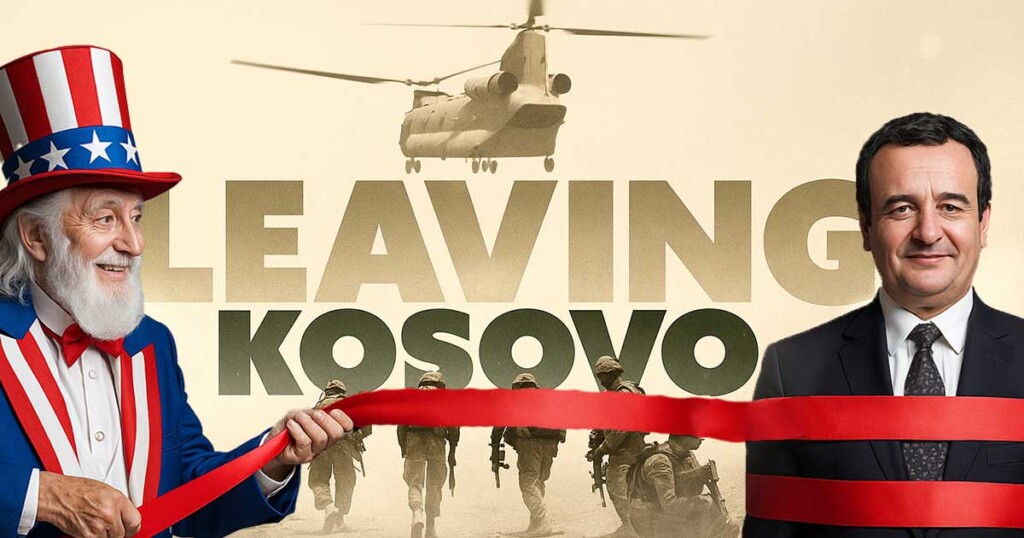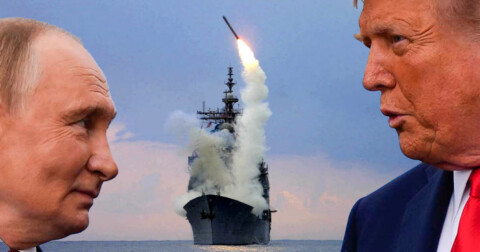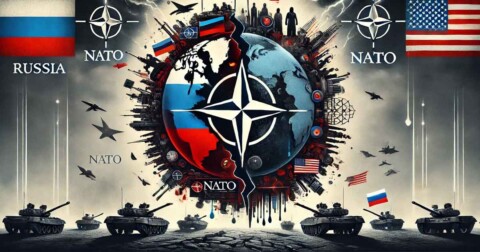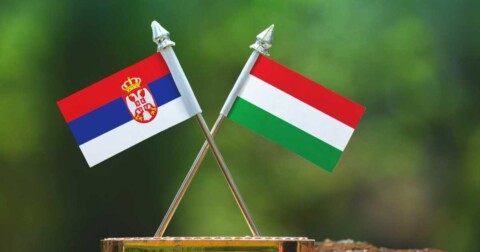On June 4, the so-called Republic of Kosovo’s Minister of Defense, Ejup Maqedonci, confirmed that Kosovo will sign a military cooperation agreement with the United States on June 13. Maqedonci described the agreement as a “historic deal”. Albin Kurti had also announced in early May that such an agreement would be concluded on June 13th.
What is the subject of this agreement, which the Albanian separatist authorities first announced back in March of this year, when Kurti’s caretaker government officially initiated the proposal to conclude a Framework Agreement on Defense Cooperation between Kosovo and the United States?
FIVE POINTS – IN THE SERVICE OF FORMING AN ARMY
The so-called Republic of Kosovo’s Minister of Defense, Maqedonci, first emphasized that “this is the first framework defense agreement signed between Kosovo’s Ministry of Defense and the U.S. Department of Defense.” The agreement is planned for a duration of five years. According to Kurti’s defense minister, the agreement consists of five points: “defense planning and management, management of human and defense resources, development of strategic military capabilities, cooperation for regional and international engagement, and strategic sustainability”.
All five points expected to be covered in the future military agreement between the so-called Kosovo and the U.S., as Maqedonci himself admits, serve the “third phase of the transformation of the Kosovo Security Forces into an army.” That the agreement is indeed intended to serve the formation of the so-called Republic of Kosovo’s army is clearly evident from what Kurti’s government expects from it, particularly in the area of “building strategic military capacities”.
Namely, the agreement is expected to include cooperation between the contracting parties in the defense industry, which, according to Maqedonci, includes “that we will jointly produce weapons systems with the U.S., ammunition for standard systems we agree on, as well as air defense systems.”
“JAVELINS” IN THE HANDS OF SEPARATISTS
To avoid any public doubt about what the last item entails, Maqedonci clarified that it “means systems that protect Kosovo from potential air attacks”.
The “development of strategic military capabilities” also includes the expected procurement of modern weapons from the U.S. for the future army of the so-called Republic of Kosovo—most notably, the previously announced acquisition of Javelin anti-tank missile systems, first mentioned in early January. During Kurti’s defense minister Maqedonci’s visit to Washington on January 14 of this year, the public learned through American media about the separatist Albanian authorities’ intention to acquire Javelins from the U.S. by the end of 2025, along with air defense radars and American helicopters.

TURKEY IS IN THE GAME TOO
The announced Framework Agreement on Defense Cooperation between Kosovo and the United States is intended to serve as the general legal basis for the procurement of such weaponry, as well as for joint investments by the so-called Kosovo and the U.S. in the development of the defense industry on the territory of Kosovo and Metohija. In this context, it is no coincidence that Kurti’s Minister of Defense compared the upcoming agreement with the U.S. to the Framework Military Agreement that the so-called Republic of Kosovo signed with Turkey at the beginning of last year. That Turkish agreement includes plans to jointly establish a NATO-standard ammunition factory on the territory of Kosovo and Metohija.
Some Serbian security experts have already warned that “if this agreement is indeed signed, with the content as stated, it would mean that Kosovo’s air defense could potentially shoot down planes taking off from Batajnica.” Consequently, it is concluded that such a development is, of course, “unacceptable to Serbia for security reasons”.
(UN)JUSTIFIED DOUBTS OF SERBIAN ANALYSTS
As soon as it became known after March 12 that the so-called Kosovo government had initiated the process of concluding a military cooperation agreement with the U.S., several Serbian analysts expressed doubt that such an agreement would actually materialize. Their skepticism stemmed from the fact that Kurti’s Minister of Defense, Maqedonci, had arranged the agreement with the previous U.S. administration—just days before Donald Trump officially took office. Kurti’s low standing within the Trump administration is further illustrated by the fact that the U.S. has still not appointed a new ambassador to Pristina.
Supporting the view that the signing of the announced military agreement is unlikely in the near future, some Serbian analysts also point out that Kurti’s government remains in a caretaker capacity, which from a constitutional and legal standpoint could make the conclusion of such an agreement problematic.
CISMOA – A FINAL WORD ON SPECULATION
It is difficult to imagine that any relevant Albanian political party would publicly criticize Kurti for concluding a military cooperation agreement with the U.S.—an agreement that would play a key role in transforming the Kosovo Security Forces into a full-fledged army. The possibility of such an agreement being concluded even under the Trump administration—regardless of its critical stance toward Kurti personally—is illustrated by the news from May 13. On that day, U.S. Major General John Phillips and the Commander of the Kosovo Security Forces, Lieutenant General Bashkim Jashari, signed the Communications Interoperability and Security Memorandum of Agreement (CISMOA) between the U.S. and the so-called Republic of Kosovo. To date, the U.S. has signed similar CISMOA agreements with thirty-two countries. These agreements allow for the secure exchange of sensitive military information and access to advanced communications equipment.
That the signing of this agreement is closely linked to both the planned Framework Agreement on Defense Cooperation between the U.S. and the so-called Kosovo, and to the announced procurement of American weaponry by the Albanian separatist authorities, is further evidenced by details shared with the public by Minister Ejup Maqedonci. Specifically, he explained that the CISMOA agreement allows the so-called Republic of Kosovo to access sensitive military-security data necessary for the effective use of Javelin missile systems and for operating American Black Hawk helicopters.
Maqedonci clarified after the signing that “countries not part of CISMOA cannot access such updated data on military systems with sensitive components and GPS technologies without a special request and approval from the American side.”

IUS BELLI GERENDI
There is no doubt that American support for transforming the Kosovo Security Forces into the army of the so-called Republic of Kosovo aims primarily to provide this separatist entity with another key attribute of state sovereignty that it currently lacks: a military—that is, the right to wage war (ius belli gerendi). It is equally beyond doubt that, according to UN Security Council Resolution 1244, during the transitional period on the territory of Kosovo and Metohija—until a final solution is reached within the framework of substantial autonomy under the sovereignty of the Republic of Serbia, as the legal successor of the FRY—only international armed forces (KFOR) under UN auspices are permitted to operate, along with up to 1,000 police and military personnel from the Republic of Serbia. That NATO, and by extension the United States, has a clear plan to help the so-called Republic of Kosovo establish a real and respectable army as soon as possible became evident last year, when the Western military alliance granted Kosovo the status of an associated member. Serbia received a more than symbolic message when this decision was made on March 24—the same date on which the NATO aggression against the FRY began.
A MESSAGE OF THREAT TO SERBIA
If the Trump administration signs the announced military cooperation agreement with the so-called Republic of Kosovo on June 13, it would simultaneously send a kind of threatening message to Serbia’s current leadership: that both its military neutrality and its related multi-vector foreign policy are unsustainable in the long run. More precisely, the formation and arming of a Kosovo army with all categories of weaponry would serve the same strategic purpose as the accession of Montenegro and North Macedonia to NATO, as well as the recent announcements of U.S. and certain European investments in Montenegro’s defense industry. Considering the earlier NATO memberships of Croatia, Hungary, Romania, and Bulgaria, these latest moves by the Collective West form a complete encirclement of Serbia and the Republika Srpska—a geopolitical pressure ring. It is intended both as leverage against Serbia and as a pretext for the authorities in Belgrade to justify full alignment of Serbia’s foreign policy with that of the EU, and eventually, in a later phase, to abandon the policy of military neutrality.
History offers many examples showing that no lasting good can come from making a “pact with the devil” for one’s own people and state. On the other hand, the resistance shown by the politically and militarily isolated leadership of Republika Srpska during wartime—despite immense pressure to sign such a pact at the expense of its own people—demonstrates that only through sober, resilient resistance can the long-term protection of national interests truly be secured.





